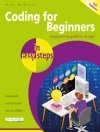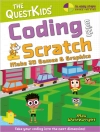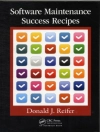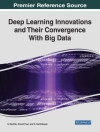This book explores the digitization of culture as a means of experiencing and understanding cultural heritage in Namibia and from international perspectives. It provides various views and perspectives on the digitization of culture, the goal being to stimulate further research, and to rapidly disseminate related discoveries. Aspects covered here include: virtual and augmented reality, audio and video technology, art, multimedia and digital media integration, cross-media technologies, modeling, visualization and interaction as a means of experiencing and grasping cultural heritage.
Over the past few decades, digitization has profoundly changed our cultural experience, not only in terms of digital technology-based access, production and dissemination, but also in terms of participation and creation, and learning and partaking in a knowledge society. Computing researchers have developed a wealth of new digital systems for preserving, sharing and interacting with cultural resources.
The book provides important information and tools for policy makers, knowledge experts, cultural and creative industries, communication scientists, professionals, educators, librarians and artists, as well as computing scientists and engineers conducting research on cultural topics.
Inhoudsopgave
Chapter 1. Past—Present—Sound: On Auralization as Augmented Reality.- Chapter 2. Leapfrogging India’s Antiquated Antiquities Laws: A Digital Strategy.- Chapter 3. Designing 3D Representations of Namibian Flora for Recognition by Indigenous Communities.- Chapter 4. Effective Visual Hints in a 3D Virtual Environment for an Indigenous Community.- Chapter 5. Envisioning the Semiotics of Cultural Heritage Artifacts.- Chapter 6. Exploiting Ndebele Designs to Control the Internet of Things for Digital Storytelling.- Chapter 7. A Mobile Multimodal Indoor Localization with i Beacon Trilateration and Dead Reckoning.- Chapter 8. Development of Location-based and Context-sensitive Services for Mobile Devices.- Chapter 9. Wildlife Animal Recognition Service: A Cross-validating Pattern and Color based Approach.- Chapter 10. Visual Hand Tracking and Gesture Recognition for Human-computer Interaction.- Chapter 11. Computer-Assisted Analysis of Reading Skills and Disorders based on Eye Tracking.- Chapter 12. Magic Equipment: Integrating Digital Narrative and Interaction Design in an Augmented Reality Quest.- Chapter 13. Collaborative Open-Content Online Dictionary for Namibian Indigenous Languages (NIL).- Chapter 14. Natural Learning – Using Applied Interactive Technologies for a Cultural Change.- Chapter 15. Virtual Reality between Art and Ethics.- Chapter 16. Strategies for Processing and Storing Digital Free-hand Sketches.- Chapter 17. Visualising an Interactive Simulation of a Micro Smart Grid Using Web Technologies.- Chapter 18. An Hexacopter-based Panoramic Virtual Reality of the NUST.- Chapter 19. Technologies to Promote the Inclusion of Indigenous knowledge Holders in Digital Cultural Heritage Preservation.
Over de auteur
Prof Dharm Singh Jat received his Master of Engineering and Ph D degrees in Computer Science and Engineering from a prestigious University of India. He is a Professor at the Department of Computer Science at Namibia’s University of Science and Technology (NUST). His research interests span the areas of multimedia communications, wireless and mobile technologies, SDN, network security, and roof computing. He has received more than 16 prestigious awards and has authored/co-authored over 160 publications.
Prof Jürgen Sieck received his degree in Mathematics and Ph D in Computer Science from the Humboldt University, Germany. He is currently the Head of the Research Group “Informations- und Kommunikationsanwendungen” and Professor of Computer Sciences in HTW Berlin. His research interests are in AR, multimedia and mobile applications. In 2013 he was awarded an honorary doctorate from ONPU, Ukraine. Since 2013, he has been a Principal Investigator in the cluster of excellence “Bild Wissen Gestaltung” at Humboldt University. Since 2015, he has also been a Professor at NUST Windhoek.
Prof Hippolyte Muyingi is the Associate Dean: Research, Faculty of Computing & Informatics, Namibia University of Science and Technology (NUST). He was the Dean from 2014 to 2015 and held the Mobile Telecommunication Company (MTC) Endowed Chair in ICT (2009–2011). He led the Department of Computer Science, University of Fort Hare (UFH) and the NRF- and multi-industry-sponsored Telkom Centre of Excellence (2001-2008), and was awarded the Telkom Research Chair in ICT, for which there were 100 candidates. Muyingi is the co-founder of the South African Siyakhula Living Lab.Dr Heike Winschiers-Theophilus, a Professor of Computer Science, has lectured in Namibia since 1994. Her research and community development activities center on co-designing technologies with indigenous and marginalized communities in Namibia and Malaysia. She promotes dialogical and community-based co-design, applying a transcultural approach to the principles of action research. She has co-chaired numerous international conferences, co-authored more than 80 peer-reviewed publications, supervised local and international students and received multiple grants.
Dr Anicia Peters is Executive Dean of the Faculty of Computing and Informatics at the Namibia University of Science and Technology. She has a Ph D in Human Computer Interaction from Iowa State University. Dr Anicia’s research focuses on HCI, social networks and e-participation. She has a mixture of academic and industry experience having worked in Silicon Valley and Namibia. Her research work is published in the IEEE Transactions for Visualization and Computer Graphics, Computers in Human Behavior, Interacting with Computers and the ACM CHI Conference. In 2016, she chaired the International Culture and Computer Science Conference as well as the Africa Human Computer Interaction Conference (Afri CHI) both organized in-cooperation with ACM SIGCHI.
Dr S H Nggada is an Associate Professor of Computer Information Science at Higher Colleges of Technology, UAE. He worked as Deputy Director/Associate Professor of Software Engineering at Namibia University of Science and Technology. Research interests include dependability analysis, software failure analysis, evolutionary algorithms and optimisation. He has Ph D in Computer Science (Hull, UK), MSc in Software Engineering












